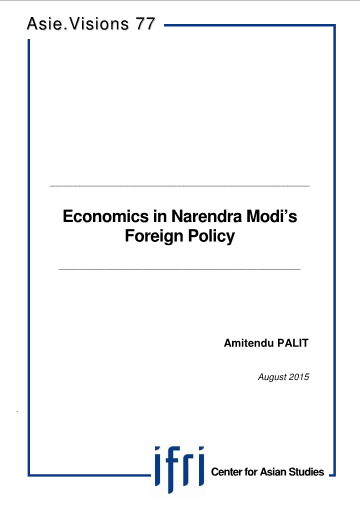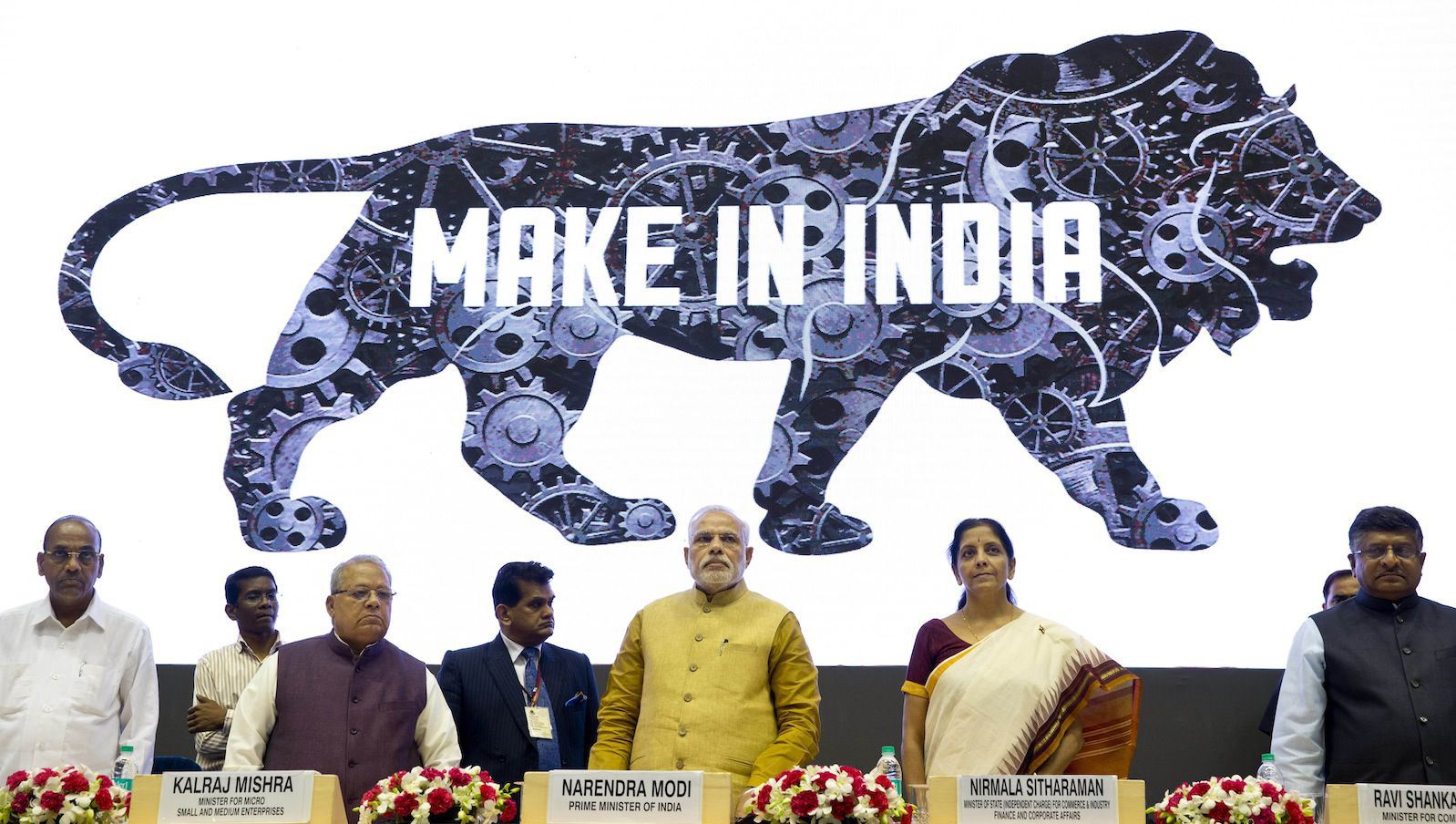Economics in Narendra Modi’s Foreign Policy

A distinct feature of Prime Minister Narendra Modi’s first year in office was the remarkable speed and alacrity with which he moved on external engagement. During his first twelve months as Prime Minister, he travelled to almost twenty countries in different parts of the world. Indeed, Modi appeared to be guided by the impression that high rates of economic growth cannot be generated only by domestic policies and initiatives.

These need to be matched by external engagement that, apart from serving geo-strategic imperatives, would be economically proactive by enabling greater exchange of goods and services and fostering business collaborations between India and the rest of the world.
As this paper points out, the drivers of Modi’s foreign policy are embedded in the objectives of domestic economic growth and expansion of the Indian economy. These drivers primarily aim to facilitate India’s economic turnaround and consolidate its comparative advantages in several key industries for expanding India’s share in global production over time. In this regard, the paper emphasizes the importance of ‘Make in India’, Modi’s signature initiative for transforming India into a global hub for several manufacturing and services industries. It also analyses Modi’s efforts to rectify India’s supply–side deficiencies, particularly its limited access to energy and argues that building nuclear energy capacities has become an important objective of the Modi government’s external outreach.
Another important driver of Modi’s external engagement is the diaspora. This is a ‘natural’ engagement given the BJP’s strong links with the overseas Indian community and the political and financial leverages it draws from the links. The paper points to the multiple significance of the Diaspora, including improving India’s global image and extracting greater strategic benefits from bilateral relations with countries that are host locations of the Diaspora. A final driver identified by the paper is Modi’s plan to ensure that India becomes an active member of major regional and economic groupings. Taking APEC as a case in point, the paper argues formal entry in APEC would enable India to be a part of the significant changes taking place in the region’s trade and economic architecture and avoid being left out of the region’s growth story.
In conclusion, the paper suggests that Modi’s challenge will be to maintain the momentum he has generated and ensure translation of positive sentiments into tangible assets facilitating India’s economic growth. Unfortunately, the Prime Minister may not be in complete control of the situation in this regard as changes pertaining to doing business conditions need to be implemented mostly by state governments. At the same time, foreign trade negotiations, particularly in the pending and upcoming FTAs and RTAs, will be an important determinant of Modi’s ability to translate words into action. The paper indicates the strategy of the Modi government is not clearly spelt out in this regard in its Foreign Trade Policy (2015-2020).
Download the full analysis
This page contains only a summary of our work. If you would like to have access to all the information from our research on the subject, you can download the full version in PDF format.
Economics in Narendra Modi’s Foreign Policy
Related centers and programs
Discover our other research centers and programsFind out more
Discover all our analyses
RAMSES 2024. A World to Be Remade
For its 42nd edition, RAMSES 2024 identifies three major challenges for 2024.

France and the Philippines should anchor their maritime partnership
With shared interests in promoting international law and sustainable development, France and the Philippines should strengthen their maritime cooperation in the Indo-Pacific. Through bilateral agreements, expanded joint exercises and the exchange of best practices, both nations can enhance maritime domain awareness, counter security threats and develop blue economy initiatives. This deeper collaboration would reinforce stability and environmental stewardship across the region.

The China-led AIIB, a geopolitical tool?
The establishment of the Asian Infrastructure Investment Bank (AIIB) in 2016, on a Chinese initiative, constituted an attempt to bridge the gap in infrastructure financing in Asia. However, it was also perceived in the West as a potential vehicle for China’s geostrategic agendas, fueling the suspicion that the institution might compete rather than align with existing multilateral development banks (MDBs) and impose its own standards.
Jammu and Kashmir in the Aftermath of August 2019
The abrogation of Article 370, which granted special status to the state of Jammu and Kashmir (J&K), has been on the agenda of the Bharatiya Janata Party (BJP) for many decades.









